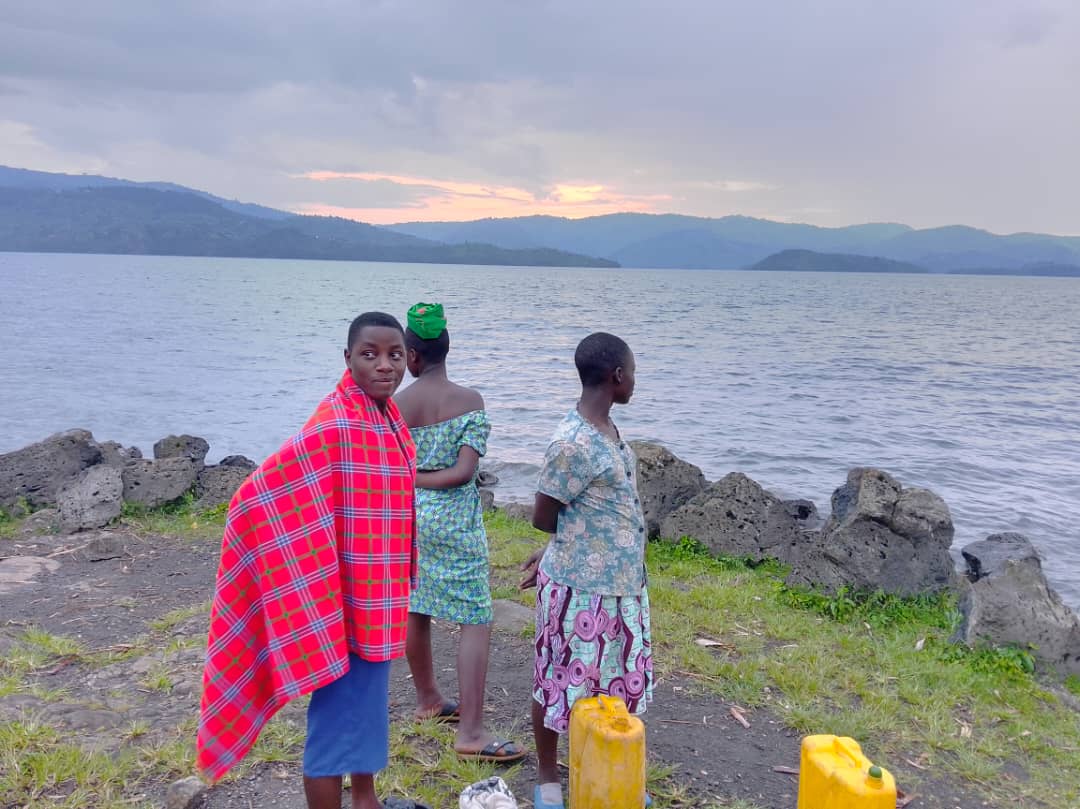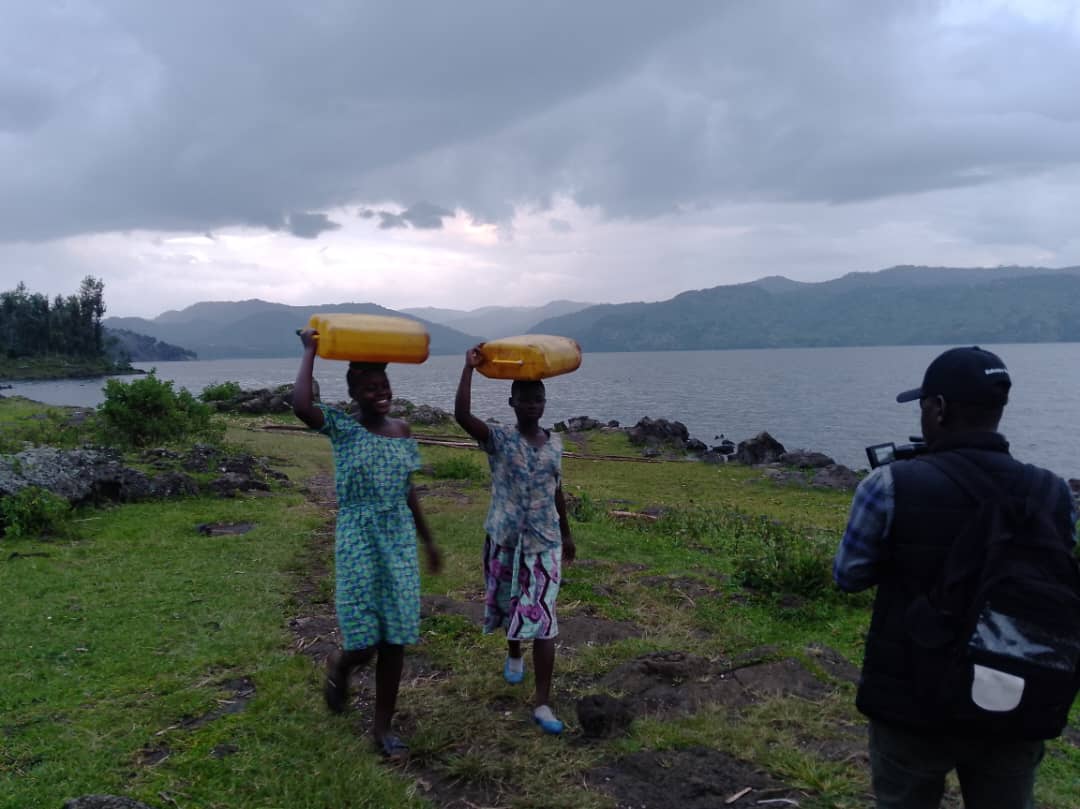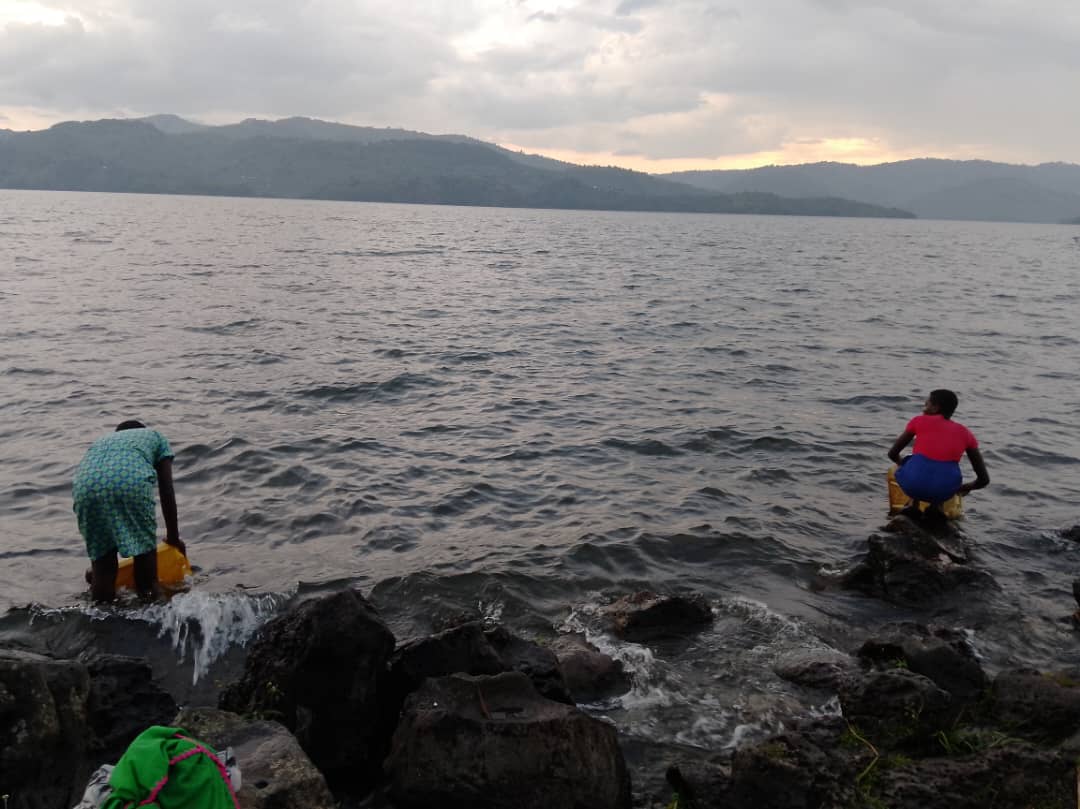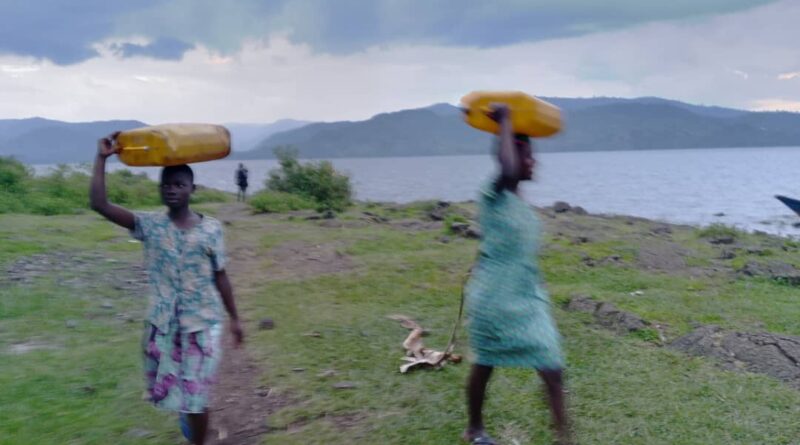Burera: Only (55%) of households have access to clean water
The distribution of clean water in Burera District remains a significant challenge. Currently, out of 91,825 households, only 4,925 (55%) have access to clean water. This is far below the district’s goal of reaching 70% of households with clean water by the 2025-2026 fiscal year.
Greenafrica.rw spoke with residents near Lake Burera in Rurembo Cell, Rugarama Sector, who revealed that many still rely on lake water due to the distance to water sources. They explained that Lake Burera is the closest and most convenient option for them.
Sengabo, a local resident, stated:”I fetch water from the lake because it’s the nearest source. You can’t leave water right here and go fetch it from far away. The nearest water source in Rurembo center is a 25-30 minute walk from here, whereas the lake is just 5-7 minutes away. Another source in Birwa Village, where some people displaced from Birwa Islands were relocated, is a 40-50 minute walk.”
 Residents confirmed that lake water is used for all household needs, including drinking, cooking, washing clothes, and bathing. Although some have concerns about waterborne diseases, many have adapted to using it over the years.
Residents confirmed that lake water is used for all household needs, including drinking, cooking, washing clothes, and bathing. Although some have concerns about waterborne diseases, many have adapted to using it over the years.
Solange Nyiransabimana shared: “We’re advised to stop using lake water and fetch it from water sources, but the water points are too far. We’ve grown accustomed to using lake water for everything—drinking, cooking, bathing, and washing. Personally, I’ve never had any issues with it. However, to address our concerns about waterborne diseases, I would request that they increase the supply of deworming medicine. That way, we can continue using the lake water, as we won’t rely on the distant sources.”
Apart from the distance, residents also pointed out the unreliability of the water supply, as taps often go dry for up to a week. This pushes them back to their “reliable fallback,” Lake Burera and Ruhondo.
Singabo explained:”Even the water sources you’re encouraging us to use can be unreliable. I’ve seen people who live closer to the sources coming here to fetch lake water when their taps run dry. So why should we waste our time fetching from a source that might not provide water tomorrow? For 54 years, I’ve relied on lake water, and it works for me. Perhaps once they develop reliable and sufficient water systems, we’ll switch. Until then, the lake is all we need.”
 The Mayor of Burera District, Soline Mukamana, acknowledged the water challenges and said efforts are underway to improve access. She highlighted several ongoing projects aimed at expanding water supply coverage to reach the 70% target by 2025-2026.
The Mayor of Burera District, Soline Mukamana, acknowledged the water challenges and said efforts are underway to improve access. She highlighted several ongoing projects aimed at expanding water supply coverage to reach the 70% target by 2025-2026.
“Currently, we’re working on multiple water pipeline projects in collaboration with partners. These include the Nganzo-Gatebe, Nyirantarengwa-Bushokanyanga, and Kinoni-Kagogo-Kinyababa pipelines. These are being implemented with support from World Vision and are already over 60% complete. We expect these projects to significantly improve water access by March 2024, as per the 2024-2025 budget timeline,” she stated.
Mayor Soline also announced plans for a new water treatment plant to be constructed in April 2025, which is expected to serve Rusarabuye, Rwerere, Cyeru, Gitovu, and Rugengabari sectors.
 “Additionally, the Mutobo water treatment plant in Musanze will expand its capacity to supply Kagogo, Cyanika, Rugarama, and Gahunga sectors. With these combined efforts, we are confident that water access will reach 70% once the five major projects are fully operational. These initiatives aim to address gaps, especially in rocky terrains,” she added.
“Additionally, the Mutobo water treatment plant in Musanze will expand its capacity to supply Kagogo, Cyanika, Rugarama, and Gahunga sectors. With these combined efforts, we are confident that water access will reach 70% once the five major projects are fully operational. These initiatives aim to address gaps, especially in rocky terrains,” she added.
Regarding the continued use of lake water, the Mayor emphasized that the district, under its “Duhari ku Bwanyu” initiative, plans to intensify community sensitization on the importance of using clean water and avoiding the health risks associated with untreated water, such as waterborne diseases.

